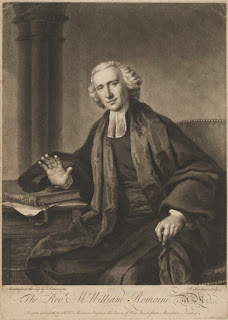...so shall my word be that goes out from my mouth; it shall not return to me empty, but it shall accomplish that which I purpose, and shall succeed in the thing for which I sent it. (Isaiah 55:11 ESV)
So when God desired to show more convincingly to the heirs of the promise the unchangeable character of his purpose, he guaranteed it with an oath, so that by two unchangeable things, in which it is impossible for God to lie, we who have fled for refuge might have strong encouragement to hold fast to the hope set before us. (Hebrews 6:17-18 ESV)
 "These promises may most steadfastly be relied upon, because of the unchangeable nature of God who makes them. All his perfections are engaged for the fulfilling of his word, so that what he has spoken has an actual being and existence. He says, and it is done—saying and doing are the same with him. Let there be ever so great a distance of time between the word spoken and the thing done, yet this is as real as any thing now in being, because it exists in the mind and will of God, is revealed in his word, and by his faithfulness and almighty power is to be established at the time appointed. How is it possible, then, that this word should be broken? There is no matter of fact of more undoubted evidence, nothing in futurity, not even the rising of the sun tomorrow, so fixed and certain as the accomplishment of God’s promises to him who believes."
"These promises may most steadfastly be relied upon, because of the unchangeable nature of God who makes them. All his perfections are engaged for the fulfilling of his word, so that what he has spoken has an actual being and existence. He says, and it is done—saying and doing are the same with him. Let there be ever so great a distance of time between the word spoken and the thing done, yet this is as real as any thing now in being, because it exists in the mind and will of God, is revealed in his word, and by his faithfulness and almighty power is to be established at the time appointed. How is it possible, then, that this word should be broken? There is no matter of fact of more undoubted evidence, nothing in futurity, not even the rising of the sun tomorrow, so fixed and certain as the accomplishment of God’s promises to him who believes."
~ William Romaine, The Life, Walk, and Triumph of Faith (1793)
Image credit: portrait of William Romaine by Richard Houston, at the National Portrait Gallery, London.
So when God desired to show more convincingly to the heirs of the promise the unchangeable character of his purpose, he guaranteed it with an oath, so that by two unchangeable things, in which it is impossible for God to lie, we who have fled for refuge might have strong encouragement to hold fast to the hope set before us. (Hebrews 6:17-18 ESV)
 "These promises may most steadfastly be relied upon, because of the unchangeable nature of God who makes them. All his perfections are engaged for the fulfilling of his word, so that what he has spoken has an actual being and existence. He says, and it is done—saying and doing are the same with him. Let there be ever so great a distance of time between the word spoken and the thing done, yet this is as real as any thing now in being, because it exists in the mind and will of God, is revealed in his word, and by his faithfulness and almighty power is to be established at the time appointed. How is it possible, then, that this word should be broken? There is no matter of fact of more undoubted evidence, nothing in futurity, not even the rising of the sun tomorrow, so fixed and certain as the accomplishment of God’s promises to him who believes."
"These promises may most steadfastly be relied upon, because of the unchangeable nature of God who makes them. All his perfections are engaged for the fulfilling of his word, so that what he has spoken has an actual being and existence. He says, and it is done—saying and doing are the same with him. Let there be ever so great a distance of time between the word spoken and the thing done, yet this is as real as any thing now in being, because it exists in the mind and will of God, is revealed in his word, and by his faithfulness and almighty power is to be established at the time appointed. How is it possible, then, that this word should be broken? There is no matter of fact of more undoubted evidence, nothing in futurity, not even the rising of the sun tomorrow, so fixed and certain as the accomplishment of God’s promises to him who believes."~ William Romaine, The Life, Walk, and Triumph of Faith (1793)
Image credit: portrait of William Romaine by Richard Houston, at the National Portrait Gallery, London.
Comments